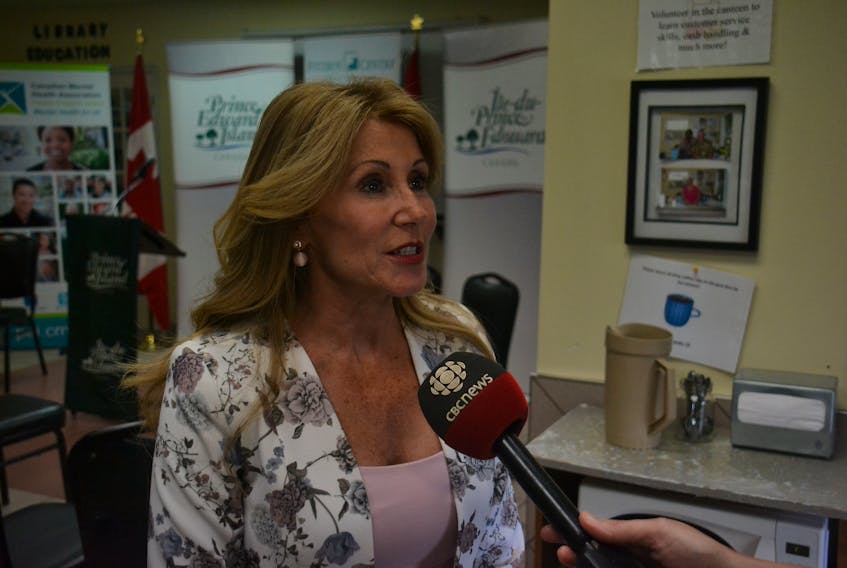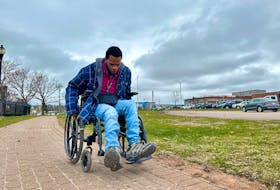Family and Human Services Minister Tina Mundy says expanded supports announced Thursday for people living with mental illness have nothing to do with a court ruling earlier this year.
In February, the P.E.I. Court of Appeal confirmed a finding by a human rights panel that the provincial disability support program discriminated against people with a mental illness.
"This started way before that decision. We had started this process over a year ago," Mundy said, explaining the province had been planning modifications since 2007 and work had been ongoing before the court ruling.
Mundy made the comments during an event at the Fitzroy Centre Club House Thursday, where she announced the Disability Support Program would be renamed AccessAbility Supports.
The expanded supports followed an announcement by Mundy last spring confirming that Islanders with mental illness would be eligible for disability programs. The implementation of these new programs will be effective as of July 16.
AccessAbility Supports will now be available to people with all types of disability, ranging from mental, physical, intellectual, neurological or sensory. Case workers will use an assessment tool to help determine eligibility for support based on how much the disability affects the person’s daily living.
In addition, the province will establish a toll-free number as the main point of contact for accessing services. Staff will aid individuals in navigating available support services. In addition, increased funding will be available for modifications of the home or vehicle of individuals living with a disability. The amount available for home modification will be increased from a $2,000 lifetime allotment to $10,000 every 10 years, while the amount for vehicle modifications will be increased from a $2,000 lifetime amount to $6,000 every eight years.

Prince Edward Island was the last province in Canada to provide disability support services to individuals with mental illness.
Amanda Brazil, director of programs and policy for the Canadian Mental Health Association's P.E.I. division, welcomed the changes.
"We've been advocating for a number of years to have mental illness included in the disability support program. To see it actually come to fruition is very exciting for us," Brazil said.
Millie King was the original complainant, on behalf of her daughter, Laura, in the successful P.E.I. Human Rights Commission case against the Disability Support Program. Laura was denied access to programming from Disability Support.
King said the single point of contact, as well as the added staff support for navigating services was a positive step. But, she said she was concerned that assessments of mental health needs may be conducted by staff who lack the proper qualifications.
"My experience was, when I went over to disability support, I'm talking to workers that don't have the education or the expertise to administer those kinds of tests or tools," King said.
King said P.E.I. government assessments have been found to be discriminatory in other past human rights decision. She said once a medical doctor has diagnosed an individual with a disability, he or she should not be forced to provide more proof of disability to caseworkers who may or may not have the necessary qualifications.









